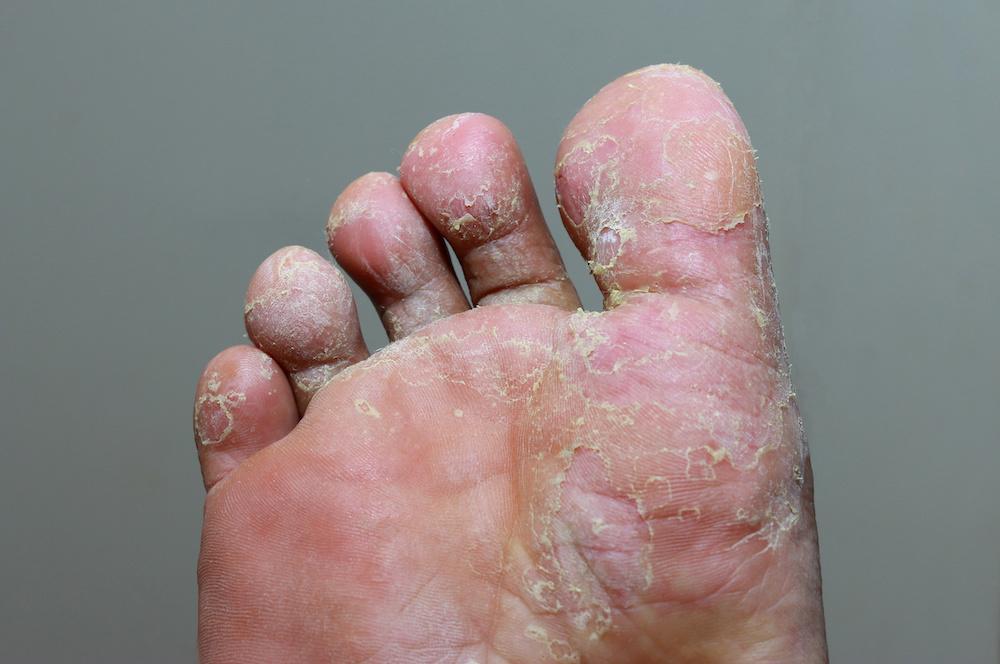Fungal Conditions Treatment in NYC

Fungal Conditions Treatment in NYC
Fungal infections can appear anywhere on the body, including the skin.
At Park Plaza Dermatology in New York City’s Midtown Manhattan, the team of NYC dermatologists, led by practice founder Pinkas Lebovits, MD, PC, can examine your skin to determine whether you have a fungal infection and clear it up with the appropriate treatment.
If you want to schedule a visit, call the office or book online today.
What is a Fungal Condition?
A fungal condition is an inflammatory infection caused by a fungus. Fungi are primitive organisms — such as mushrooms, mildew, and mold — that can live in plants, air, soil, water, and even the human body.
While most fungi are harmless, they produce tiny spores that can land on your skin and cause an infection.
Common Types of Fungal Conditions
Tinea Versicolor
A very common fungal condition that typically affects the upper part of the body, including the scalp.
Also known as “beach fungus,” it usually starts as pinkish, brownish scaly lesions on the trunk or neck.
It leaves whitish discolored spots on the skin, especially after sun exposure. Common in young adults, it is more pronounced in hot, moist climates during the summer and autumn.
Athlete’s Foot
Also known as tinea pedis, Athlete’s foot is a fungal infection of the foot causing itchiness, redness, skin peeling, and burning.
This type of fungus thrives in warm, moist environments like swimming pools, tight shoes and socks, public shower floors, and locker rooms.
Yeast Infection
Caused by the fungus candida, a yeast infection (cutaneous candidiasis) occurs when yeast begins growing on the skin, leading to a red, itchy, scaly skin rash.
Ringworm
Known as tinea corporis, ringworm is a fungal infection of the skin that produces a circular red sore resembling a ring.
Jock Itch
Jock itch, or tinea cruris, is a red, itchy, ring-shaped rash affecting the inner thighs, buttocks, or genitals. It occurs most often in warm, humid climates.
Recognizing Symptoms of Fungal Skin Conditions
Each type of fungal infection has its unique symptoms, but some of the most common include:
Anyone can get a fungal infection of the skin, but those with weakened immune systems or those taking antibiotics are at higher risk.
- Redness
- Peeling skin
- Skin rash
- Itchy skin
- Cracked skin
- Ring-like sore on the skin
- Stinging or burning
- Scaly skin
- Sores or blisters
- Discolored nails
- Crumbly nails
Effective Treatments for Fungal Conditions
At Park Plaza Dermatology, our experienced dermatologists will examine your skin to determine the most effective treatment for your fungal infection.
Your provider may scrape off a small portion of the affected area to observe the fungus under a microscope. Depending on the diagnosis, we offer the following treatments:
Topical Antifungal Treatments
Creams, lotions, shampoos, gels, or solutions applied directly to the affected area.
Oral Antifungal Medications
Pills that help treat more severe fungal infections.
Laser Treatment
Advanced laser treatments targeting fungal infections, especially for stubborn nail infections.
Frequently Asked Questions (FAQs) About Fungal Conditions
Fungal infections are caused by fungi, which are primitive organisms like mushrooms, mildew, and mold. These fungi produce spores that can land on your skin and cause an infection, especially in warm, moist environments.
A dermatologist is the best specialist to see for fungal infections. At Park Plaza Dermatology, our experienced team, led by Dr. Pinkas Lebovits, can diagnose and treat a variety of fungal conditions.
A dermatologist may perform a physical examination and, if needed, scrape a small portion of the affected area to observe the fungus under a microscope. This helps in identifying the specific type of fungal infection.
Treatment options include topical antifungal creams, lotions, shampoos, gels, or solutions, oral antifungal medications, and laser treatments. The choice of treatment depends on the type and severity of the infection.
Yes, fungal infections can be prevented by maintaining good hygiene, keeping your skin dry, changing socks and underwear frequently, and avoiding sharing personal items like towels or shoes. Wearing open-toed shoes can also help keep your feet dry and prevent infections like Athlete’s foot.
Many fungal infections, such as Athlete’s foot and ringworm, are contagious and can spread through direct contact with an infected person or contaminated surfaces. It’s important to avoid sharing personal items and to maintain good hygiene to prevent spreading the infection.
The duration of treatment varies depending on the type and severity of the infection. Some fungal infections can be treated within a few weeks with topical medications, while others may require several months of oral antifungal treatments or multiple laser sessions.
If you have recurrent fungal infections, it’s important to discuss this with your dermatologist. They can provide strategies to manage and prevent recurrence, such as lifestyle modifications and possibly longer courses of treatment.
Finding the Best Fungus Specialist in NYC
Most fungal conditions are itchy, painful, and uncomfortable. If you think you may have one, call Park Plaza Dermatology, or schedule an appointment online.
We are dedicated fungus specialists and are proud to help our New York City patients remain fungal-free.
We accept most insurance plans, including Aetna, Fidelis, Blue Cross Blue Shield, GHI, Healthfirst, Metroplus, United Health Care, Cigna, Oxford, Emblem Health, Humana, HIP, Affinity, Magnacare, and more. Our main office is located in Midtown Manhattan, with additional offices across NYC, Manhattan, Brooklyn, and the Bronx.
